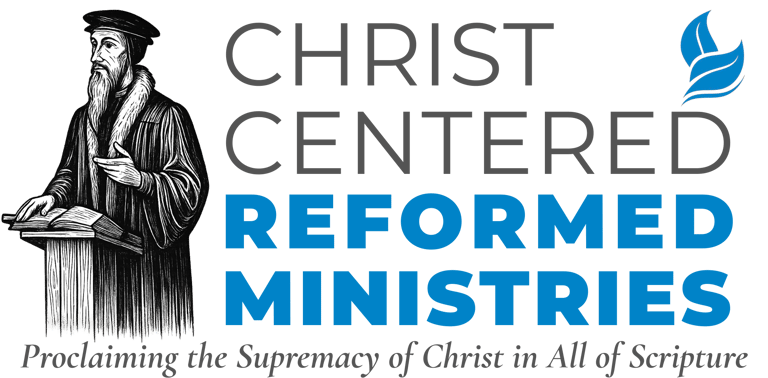Unveiling the Depths of Isaiah 53:10: The Suffering Servant's Sacrifice
In this blog post we delve into the profound theological implications of Isaiah 53:10, exploring the sacrificial suffering and redemptive victory of the "Suffering Servant" within the divine narrative of redemptive history. It unpacks the layers of prophecy, atonement, and the majestic sovereignty of God's plan for humanity, as fulfilled in the life, death, and resurrection of Jesus Christ.
EXEGETICAL ARTICLE
Justin Hoke
3/26/20243 min read


(וַיהוָה חָפֵץ דַּכְּאוֹ הֶחֱלִי אִם־תָּשִׂים אָשָׁם נַפְשׁוֹ יִרְאֶה זֶרַע יַאֲרִיךְ יָמִים וְחֵפֶץ יְהוָה בְּיָדוֹ יִצְלָח׃)
But the LORD was pleased to crush him, causing [him] to suffer; since he makes his soul a guilt offering, he will see [his] offspring, he will prolong [his] days, and the will of the LORD will succeed in his hand.
(וַיהוָה חָפֵץ דַּכְּאוֹ הֶחֱלִי)
(But the LORD was pleased to crush him, causing [him] to suffer) This phrase reveals that the Servant's suffering was part of God's sovereign plan. God the Father was please or delighted to crush and cause to suffer His "Suffering-Servant"
(חָפֵץ, ḥāp̄ēṣ)
This Hebrew word translated as "pleased" emphasizes that this suffering was not accidental but intentional. God the Father not only desired this suffering to take place He was the cause of this suffering. And that is glorious news for the sinner. Why?, Because this "Suffering-Servant" we're told in the next clause would make His soul a guilt offering.
(אִם־תָּשִׂים אָשָׁם נַפְשׁוֹ)
(if he makes his soul a guilt offering) This phrase points to the substitutionary nature of the Servant's suffering. He would not suffer for Himself or on account of His own sin rather, He would suffer as an offering for the sin of those referred to in the next clause as His offspring.
(אָשָׁם, 'āšām)
Building on this theme, the word ('āšām) translated as "guilt offering" refers to a sacrifice made to atone for sin and restore the relationship between God and the one who offers it (see Leviticus 5:14-6:7). The Servant offers Himself as the guilt offering, bearing the consequences of others' sins.
(יִרְאֶה זֶרַע יַאֲרִיךְ יָמִים)
(he will see [his] offspring, he will prolong [his] days) Although the Servant dies, this phrase indicates that he will live again and see the fruit of his suffering. This is clearly a reference to the resurrection of Christ and the spiritual offspring he will gain through his redemptive work (see Hebrews 2:10-13). This promise of resurrection and blessing displays beyond all doubt that the Father accepts the atoning sacrifice of His "Suffering-Servant". This crushing of God the Son by God the Father is clearly propitiatory, meaning that God the Father willfully pours upon God the Son the wrath due those for whom the Son suffers. This is why the doctrine of limited atonement cannot be challenged by those who believe in Hell and reject a universal salvation of mankind. Because if Jesus suffered for "all" without exception, then "all" without exception are heirs of the propitiatory work of Christ. Meaning that all with out exception have had their sin in full paid for by God the Son during this crushing. According to this passage we only have two options for the extent of the atonement; 1. Christ died for a particular people identified as "His offspring" or 2. Christ died for all without exception making all without exception "His offspring". In the very next verse Isaiah declares that this work of Christ will result in the justification of "many" and reiterates that that it was for this group, identified as the "many", who's sins were bore by the "Suffering-Servant".
(וְחֵפֶץ יְהוָה בְּיָדוֹ יִצְלָח)
(and the will of the LORD will succeed in his hand) This final phrase affirms that the Servant's suffering and death will accomplish God's purpose. Revealing that it is the will of the Father to redeem and justify the "offspring" of the Son. This passage makes it clear that all for whom Christ suffered, God the Father was pleased to lay their sin upon God the Son as a propitiation. And the result of this propitiation (satisfactory sacrifice) is that these, "offspring", are redeemed and justified. Thus again, if Jesus did the work in this passage for all without exception, then all without exception are saved. But what does John say just after letting us know that His own "did not recieve Him"? John 1:12, But as many as received Him, to them He gave the right to become children of God, to those who believe in His name: 13 who were born, not of blood, nor of the will of the flesh, nor of the will of man, but of God. Just as God the Father willed to crush the "Suffering Servant", so it is His will that causes men to believe upon Christ and to be born as His "offspring".
Final Thoughts
In the New Testament, Isaiah 53:10 is understood to be fulfilled in the death and resurrection of Jesus Christ. For example, in Acts 8:32-35, Philip interprets this Servant Song as referring to Jesus when he explains the gospel to the Ethiopian eunuch. Furthermore, the substitutionary nature of Christ's death, as described in this verse, is a central theme in the New Testament (e.g., Romans 3:25; 2 Corinthians 5:21; 1 Peter 2:24).
For Further Study:
In My Place Condemned He Stood: Celebrating the Glory of the Atonement by J.I. Packer
The Reformed Doctrine of the Atonement by Loraine Boettner
Death of Death in the Death of Christ: Why Christ Saves All for Whom He Died By John Owen
